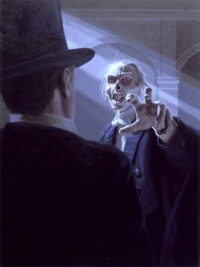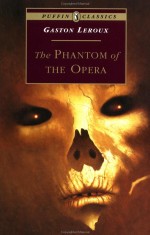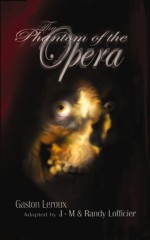On Translations of Le Fantôme de l'Opéra
Last edited on January 16, 2006
When I wrote the other entry I had no access to the Internet. But the thing about the unnamed translator let me no rest, and I did a quick google search. Thereby I stumbled over a very nice web site that goes under the stupendous creative name PhantomeoftheOpera.info. It is a huge collection of articles, essays, pictures, information on several musical and motion-picture adaptations, translations, and much more.
A quick text comparison has shown that the translation of my copy has been done by Alexander Teixeira de Mattos in 1911, according to Phantom Literatur -- A Guide To Acquisition.
Apart from the original text Le Fantôme de l'Opéra by Gaston Leroux, which was indeed written in French (and published in 1910), there seem to be three different translation to the English language right now:
- The translation by Alexander Teixeira de Mattos, published in 1911,
- the translation by Lowell Bair, published in 1990,
- the translation by Leonard Wolf, published in 1996, and
- the translation by Jean-Marc and Randy Lofficier, published in 2004.
Quite interesting is the essay Lost In The Translation: Gaston Leroux's Phantom Novel -- And What the Translators Have Done to It by Carrie Hernández, the author of the aforementioned web site herself, in which she compares differences of the former three English translations: "[...] a comparative analysis of those three [translations] and the striking, often shocking, differences between them."
Hernández claims that Teixeira de Mattos' translation is far from being unabridged. His translations of the chapter titles are in part rather compact, Leroux's chapter five, entitled Suite de «la loge n° 5», is completly missing from his translation, although Teixeira de Mattos "combined the material from both chapters four and five under the single title of chapter four," and even worse: "Whole passagessome of them the most beautiful in the bookare missing from the Teixeira de Mattos translation." Her conjecture as to why he made those omissions are as egregious as prosaic:
Apart from these and even more considerations my pristine verdict remains: I really enjoyed the English of Teixeira de Mattos' translation! But Hernández comments made me curious, I conclude that I should try one of the newer translations. The French original is out of question for me, in the first instance I would have to learn French, and I'm sorry but I really do not appreciate the sound of French. (Several years ago I began to learn, decadent that I am, another language just because of the sound of it: Italien. With adequate and clear pronunciation it can truly be marvellous. But more on this in a later article. . .)
Comparing the short excerpts in the essay, I would prefer the adaption by Wolf over the translation by Bair. The latter seems to be of a simpler, more straightforward language that I do not enjoy that much. Compare for example this section of Bair's translation (in chapter 13 of the original text, entitlled La lyre d'Apollon):
to Wolf's version:
I like it when the ordinary word order is changed on emphasis grounds, as in the first sentence of Wolf's translation "That evening, we exchanged not a word." or in "Forgotten was my bizarre adventure." It may be a harsh comment but the other translation reminds me a little bit of simplified English in contrast. But, on the other hand, this is just my liking. . .
Oh, by the way, the whole quoted section, that even consists of some additional lines, is translated by the following two sentences in Teixeira de Mattos' adaptation:
Unfortunately, Hernández comes in her further analysis of style to the conclusion that Wolf's translation is "probably the least poetic [work]". And in the section regarding "translation of idiomatic expressions" she writes:
Unfortunately, Wolf's "word-for-word" translations are often further from Leroux's actual meanings than those of Bair.
[. . .]
Unfortunately, this odd tick of Wolf'stranslating always for each word, rather than for the meaning of the entire expressionpermeates the entire work so that certain sentences have lost their original meaning. For this reason, reading his translation does not give one a good representation of either Leroux's poetic flow or his actual meaning.
Sadly, the newest translation by Jean-Marc and Randy Lofficier, published in 2004, has not been analysed in Hernández' essay, as the latter has been written in the year 2000. Being a naive person, I assume that both translators must have felt that the existing translations are not satisfying. Perhaps they were successful in their, assumed, enthusiastic attempt.
Well, actually there is a Discussion and Interview with Jean-Marc Lofficier by Carrie Hernández. This new translation does sound interesting. The following section of the article will give you a hint of the book's kind, but make sure to read it yourself.




